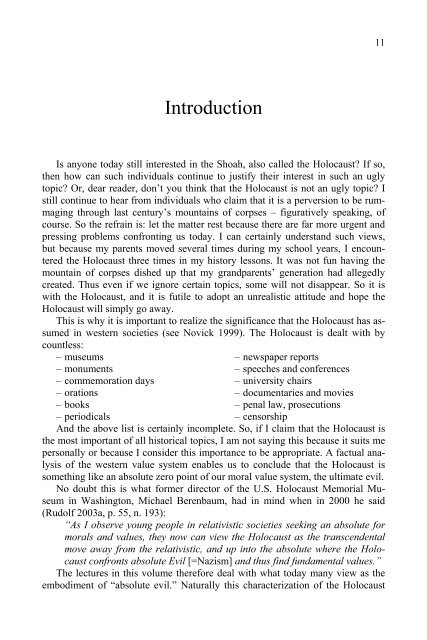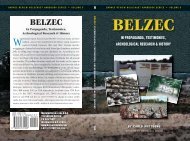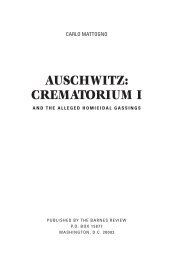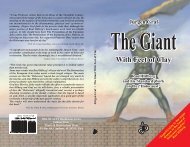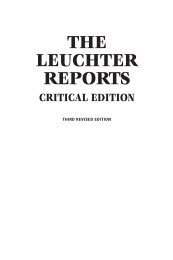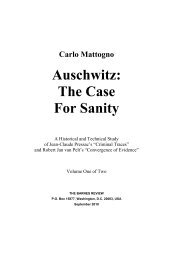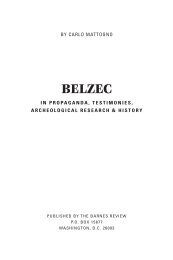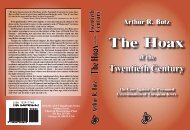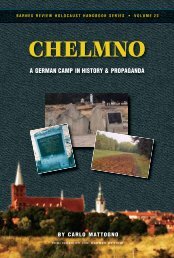15-loth-intro.pdf - The Barnes Review
15-loth-intro.pdf - The Barnes Review
15-loth-intro.pdf - The Barnes Review
- No tags were found...
Create successful ePaper yourself
Turn your PDF publications into a flip-book with our unique Google optimized e-Paper software.
11IntroductionIs anyone today still interested in the Shoah, also called the Holocaust? If so,then how can such individuals continue to justify their interest in such an uglytopic? Or, dear reader, don’t you think that the Holocaust is not an ugly topic? Istill continue to hear from individuals who claim that it is a perversion to be rummagingthrough last century’s mountains of corpses – figuratively speaking, ofcourse. So the refrain is: let the matter rest because there are far more urgent andpressing problems confronting us today. I can certainly understand such views,but because my parents moved several times during my school years, I encounteredthe Holocaust three times in my history lessons. It was not fun having themountain of corpses dished up that my grandparents’ generation had allegedlycreated. Thus even if we ignore certain topics, some will not disappear. So it iswith the Holocaust, and it is futile to adopt an unrealistic attitude and hope theHolocaust will simply go away.This is why it is important to realize the significance that the Holocaust has assumedin western societies (see Novick 1999). <strong>The</strong> Holocaust is dealt with bycountless:– museums– monuments– commemoration days– orations– books– periodicals– newspaper reports– speeches and conferences– university chairs– documentaries and movies– penal law, prosecutions– censorshipAnd the above list is certainly incomplete. So, if I claim that the Holocaust isthe most important of all historical topics, I am not saying this because it suits mepersonally or because I consider this importance to be appropriate. A factual analysisof the western value system enables us to conclude that the Holocaust issomething like an absolute zero point of our moral value system, the ultimate evil.No doubt this is what former director of the U.S. Holocaust Memorial Museumin Washington, Michael Berenbaum, had in mind when in 2000 he said(Rudolf 2003a, p. 55, n. 193):“As I observe young people in relativistic societies seeking an absolute formorals and values, they now can view the Holocaust as the transcendentalmove away from the relativistic, and up into the absolute where the Holocaustconfronts absolute Evil [=Nazism] and thus find fundamental values.”<strong>The</strong> lectures in this volume therefore deal with what today many view as theembodiment of “absolute evil.” Naturally this characterization of the Holocaust


